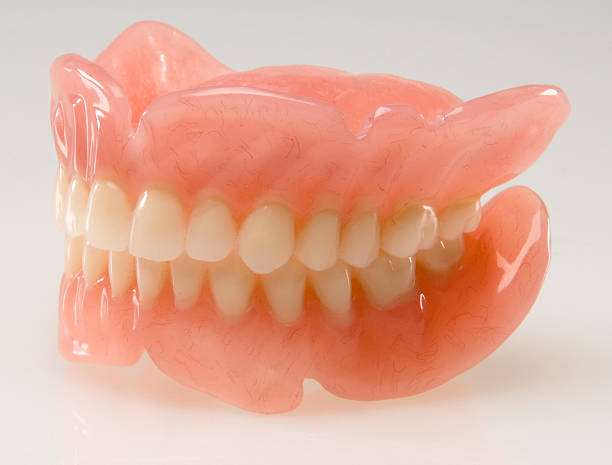Facts & Tips: Dentures
Dentures are used to replace lost or missing teeth. Quite often you find that people who have lost all their teeth also lose a lot of confidence on their appearance and smile, not to mention how difficult it is to process food without any teeth.
Dentures can bring back a lovely smile and the confidence that comes with it. Whether its full dentures or partial ones, they can have a really positive impact on a person’s quality of life and self-esteem.
To find out a little bit more, here are the Oral Health Foundation’s top facts and tips for dentures…
Top ten facts about dentures:
- In a study across 19 countries researchers found that an average of 19% of the population wear some form of denture. That’s nearly one in five.
- There are two types of dentures: partial dentures and full dentures.
- A ‘partial’ denture fills in the spaces left by lost or missing teeth. It may be fastened to your natural teeth with metal clasps or ‘precision attachments’.
- A ‘complete’ or ‘full’ denture is one which replaces all the natural teeth in either the upper or lower jaw.
- A complete or full denture can give support to your cheeks and lips. Without this support, sagging facial muscles can make a person look older and they will find it harder to eat and speak properly.
- Dentures are ‘made to measure’ and designed to fit snuggly around the gums. Your dentist will take measurements and impressions of your mouth, then order your dentures from a dental technician.
- Dentures must be looked after properly. A lack of denture cleanliness can lead to poorer oral health, as well as general health problems.
- If dentures are not properly cleaned it can lead to ‘denture stomatitis’. This is caused by the build-up of a yeast or fungus called candida.
- Dentures should be cleaned daily using mechanical action i.e. brushing with a toothbrush or denture brush and an effective, non-abrasive denture cleanser.
- If you take care of your dentures, you should be able to use them for five-to-seven years before you need to replace them.
Top five tips:
- Denture adhesive can be used to improve the retention of, and reduce food accumulation beneath, well-fitting complete dentures. They may also enhance patient comfort, provide peace of mind and also increase confidence and overall wellbeing.
- Dentures should be soaked in a denture-cleansing solution daily. This breaks down the remaining plaque and helps to disinfect the denture. Denture-cleansing solutions should only be used outside the mouth, and denture wearers should strictly follow the manufacturers’ guidelines.
- Dentures may break if you drop them. Always clean your dentures over a bowl of water or a folded towel in case you drop them.
- Denture wearers should not keep their dentures in the mouth overnight to relieve soreness and prevent infection, unless there are specific reasons for keeping them in.
- It’s still important that you visit the dentist regularly after getting a set of dentures. Doing so gives your dental team the opportunity to make sure that the dentures are in good shape and your mouth is still healthy. It also gives you a chance to ask them any questions you might have about your dentures.

